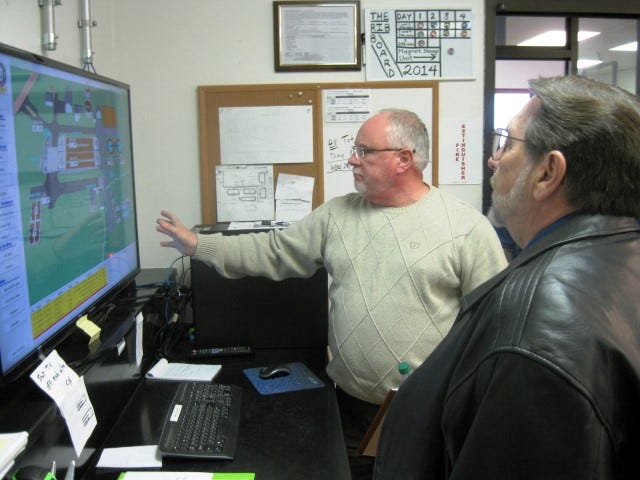
CRESTVIEW — City and water engineering contractor CH2M Hill officials are planning pipelines that will transport treated wastewater to golf course and developer customers.
In addition, they will boost educational outreach to include school and organization visits to the city’s wastewater treatment plant. That's important because "there’s a lot that happens when someone flushes that toilet,” project manager Jayne Swift said. “We’re the end result.”
Swift, Public Works Director Wayne Steele and city officials are flush with excitement upon last month's completion of the plant’s fourth expansion phase.
Among other improvements, the new phase replaces the treated water disinfection system.
The plant previously used chlorine gas to treat water. Under the new system, the water is cleaned with what Swift called "essentially industrial bleach," which is less hazardous to handle.
Improvements also include the beginnings of infrastructure to distribute and sell treated wastewater, some of which is currently sprayed on a 275-acre spray field, growing grasses for farmers.
City officials are in discussions with Foxwood Country Club officials and housing developers to buy treated water for use on golf courses, landscaping and lawns, Steele said.
“They’re excited because they have a capacity limit” with wells or municipal water supplies, Steele said. “When things go dry, it costs them money.”
The plant — which operates on a $1 million annual budget — daily can process up to 2.75 million gallons of wastewater. It recoups some of its expenses through charging for the service it provides.
“This (program) helps them and it helps the city,” Steele said. “We can charge for that water. It helps cover our costs of operation.”
The new phase called for constructing five rapid infiltration basins, or RIPs, which clean treated sewage through percolation. The RIPs will provide treated water for developers and country clubs.
“You can treat all the sewage you want but if you can’t get rid of it, you’re no better off than when you started,” Steele said.
Crestview’s wastewater treatment plant is both the city’s biggest construction project and its largest asset, representing a $26.450 million investment since it was started in 1994, Steele said.
“Sewer and water (service) is the lifeblood of a developing city,” he said.
“Without this, Crestview isn’t going to grow in any way,” City Council President Shannon Hayes said as Steele showed officials a control monitor of the entire plant. “This right here really is the future of Crestview.”
By positioning the plant to anticipate the city’s growth, “we’re ahead of the game and it’s going to make life easier for everybody,” Swift said. “This city has forethought.”
WANT TO GO?
Schools and community organizations interested in touring Crestview's wastewater treatment plant may contact Jayne Swift, H2M Hill project manager, 682-0829.
Email News Bulletin Staff Writer Brian Hughes, follow him on Twitter or call 850-682-6524.
This article originally appeared on Crestview News Bulletin: Crestview’s wastewater treatment plant grows with city
